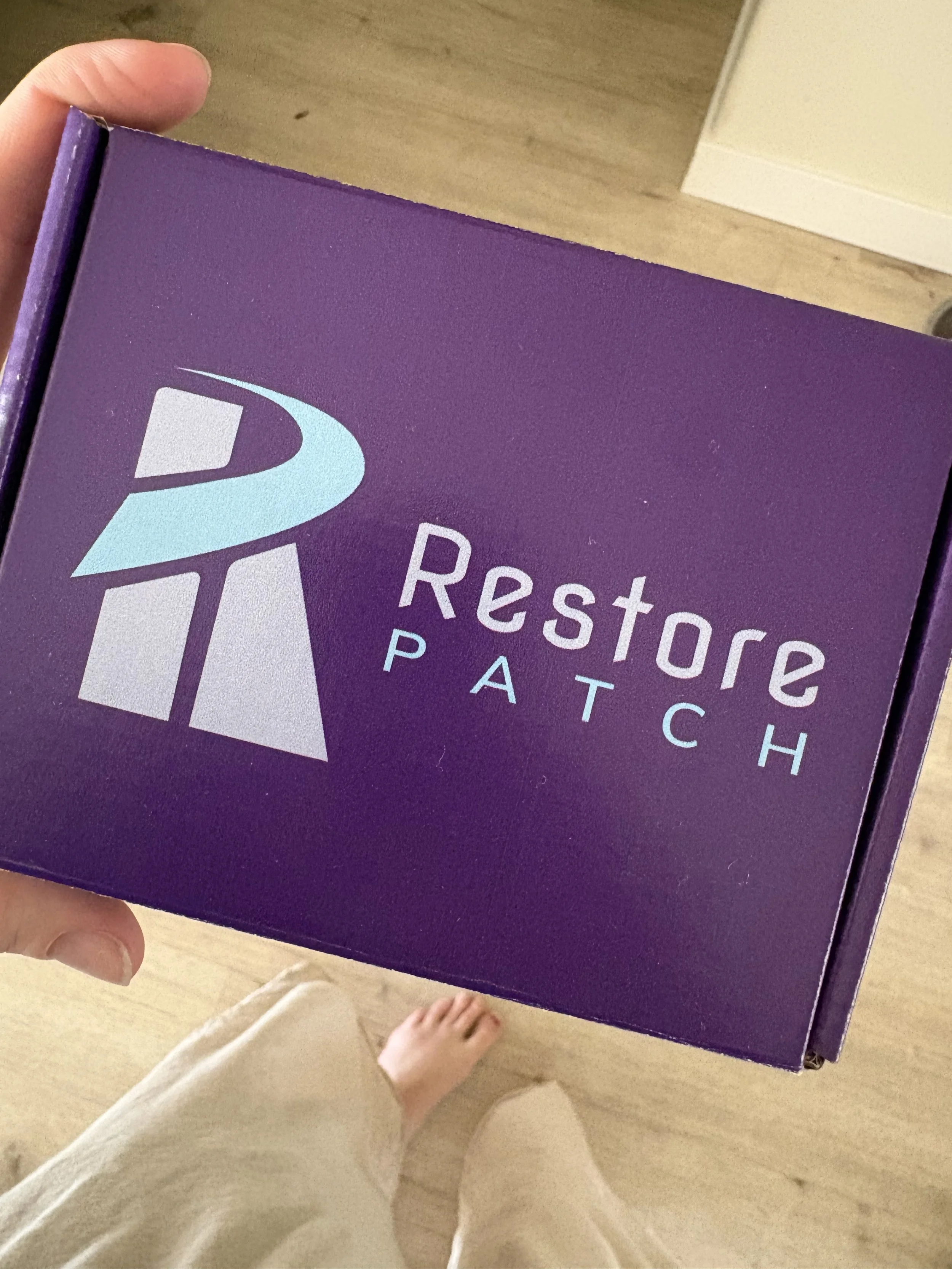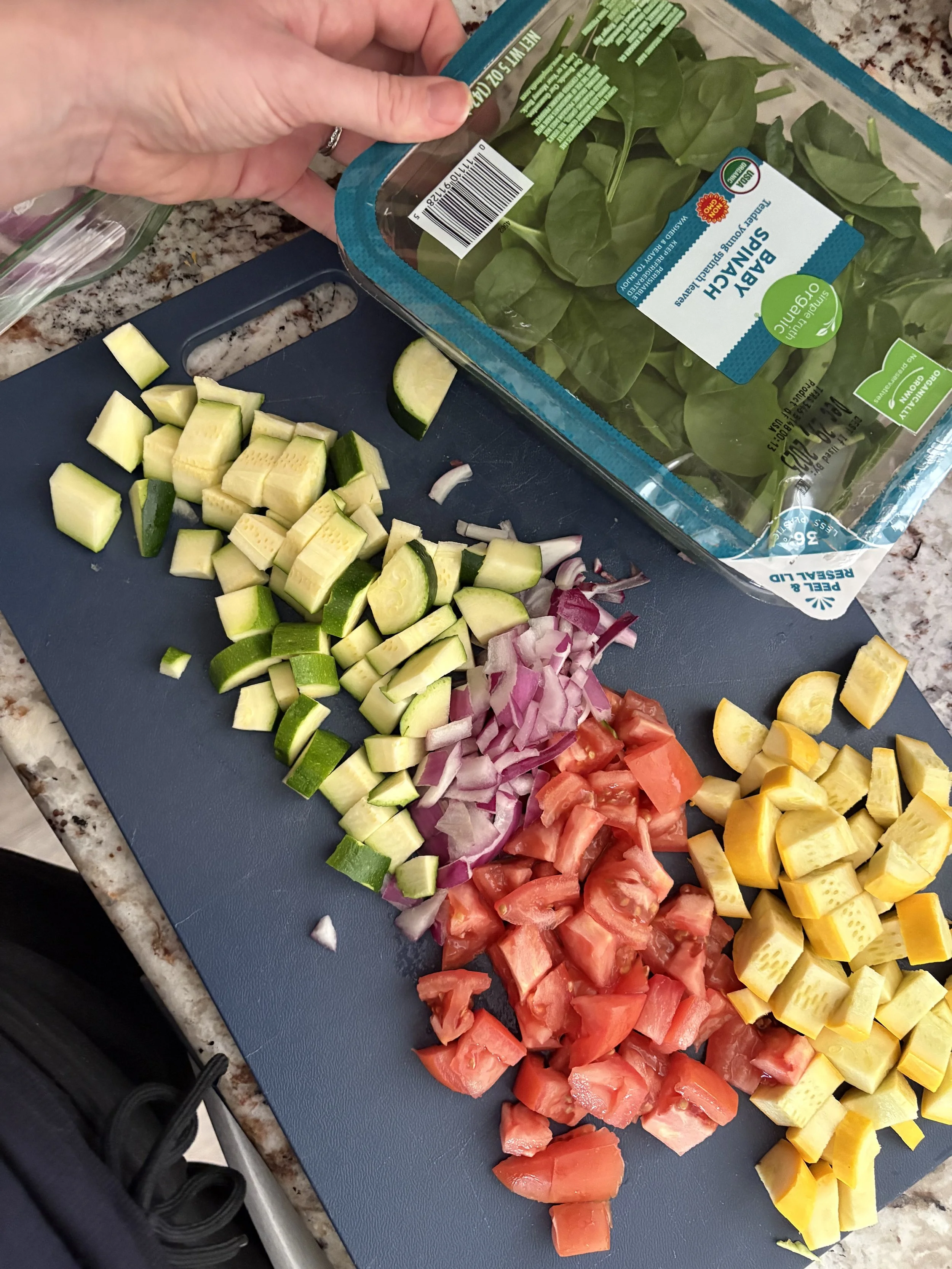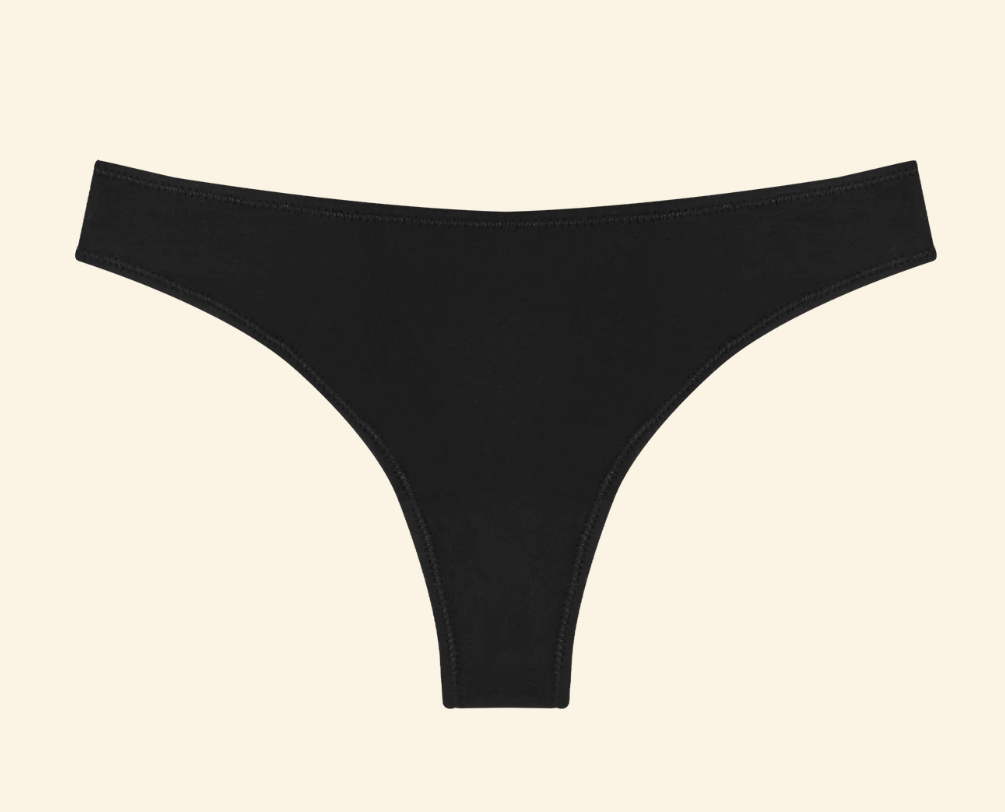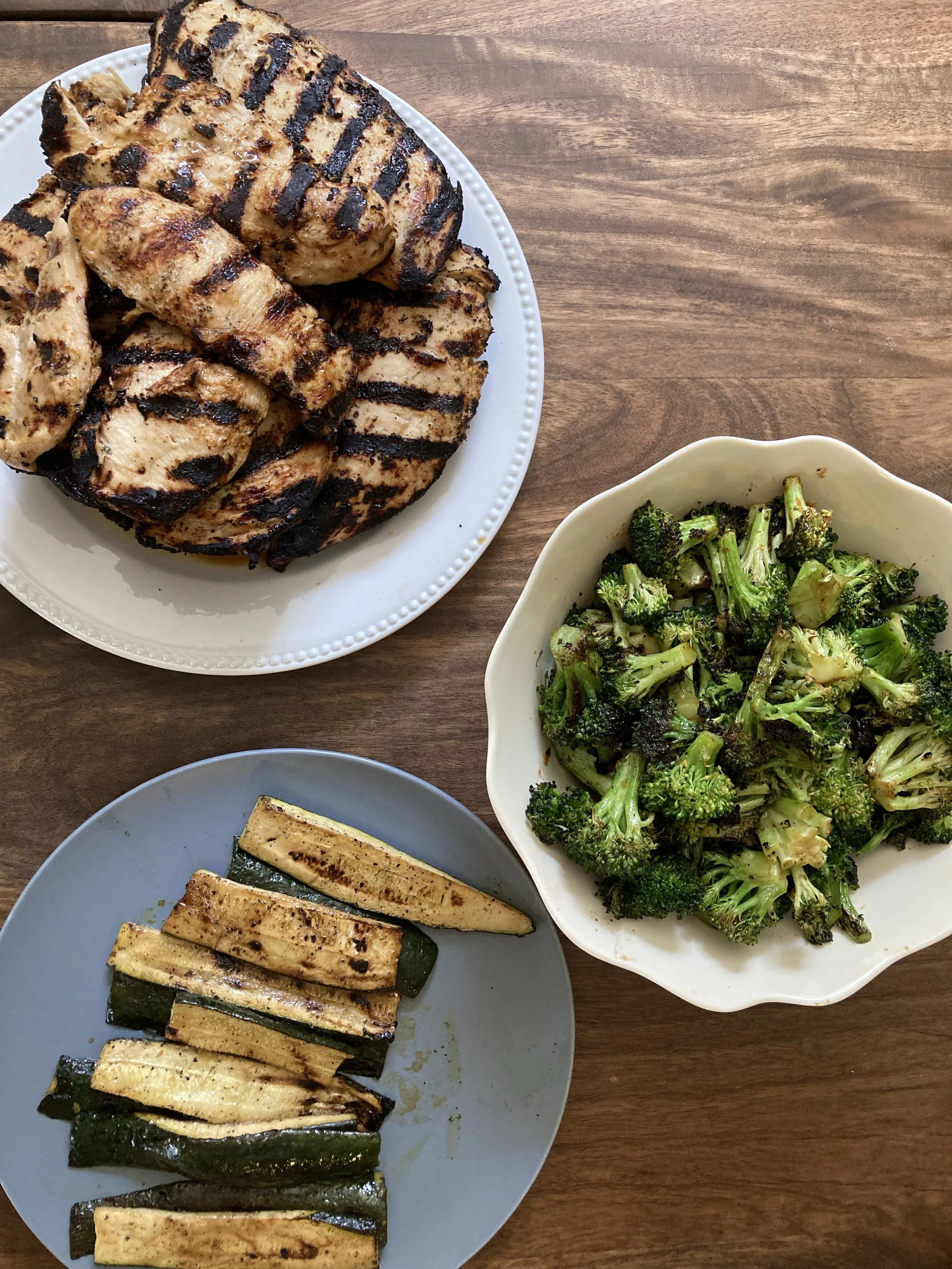Postpartum Weight Loss + Body Recomposition
This month marks 14 months since having my son and two months since beginning the process of body recomposition.
Body recomposition is just a fancy term referring to the replacement of adipose tissue (fat) with muscle. I am using this term intentionally in place of the more common term, “weight loss”. Although, sometimes (not always) they are one in the same.
Why I am working on body recomposition?
For the last 4 years, I have either been pregnant or breastfeeding (minus a short gap in between the two). And I continue to nurse my son 3-4 times a day. That is a huuge psychological and physiological toll on my body— and I have really been adamant to reduce any additional stressors as much as possible.
With each of my pregnancies, I gained about 40 pounds and lost all but 10 of them within the first year postpartum. But according to some body composition testing, I have lost nearly 5 pounds of muscle. That isn’t inherently bad— my body had bigger concerns than maintaining muscle (like growing and feeding my babies— and I thank the Lord every day for my ability to do so).
But I would like to feel stronger and more confident in my body. And over the last couple of months, my body has shown signs that it is physiologically capable of managing a little more stress (and anytime you are losing fat, it is a stress on your body). Some of these signs of readiness include:
sleeping mostly through the night
regained my period
better emotional resiliency and stress regulation
recovering well from workouts
tolerating a slight calorie deficit without reducing my milk supply or energy levels (I will elaborate on my approach to a calorie deficit here shortly)
With all that in place, I feel confident getting back into the gym with the intent of feeling strong again and losing some of the extra fat storage my body has been holding onto. I am at a point in my life where I am more concerned with the capabilities of my body than a number on the scale or the size of my clothes. I would love to be able to do a few pull-ups again (the last time this happened was before I was ever having babies 😅), have more endurance when hiking, and benefit from those feel-good endorphins that come with working out.
My Approach to Body Recomposition
Above any body goals, my main focus is showing up well for my family. That means that I need to be able to tolerate any sort of additional stress well. If my body (or emotions) begin showing any signs of a struggle, I’ll pump the brakes and revisit in another season (most likely after I am done breastfeeding my son). But so far, all signs show that now is a good time, so here is the approach I am taking.
Knowing my baseline
For starters, I tracked my calories for a couple of weeks to see just how much I was eating. I already had a pretty good idea, but I wanted solid data to go off of. At the time of starting, I was staying pretty active with daily walks and bodyweight workouts 2-3x per week.
Gradual and slow deficit
For the first month, I did now adjust my calories at all and just began more vigorous workouts— heavier weight lifting, increased daily steps, light cardio a and couple of times per week. Once I saw that my body was tolerating that well, I began adjusting my caloric intake.
Knowing my baseline calories allowed me to slightly lower them (literally by like 100 calories to begin with) and see how my body did over a couple of weeks. By increasing my activity levels, I was already creating a caloric deficit and wanted to be mindful not to do anything too drastic.
Incorporate more weight lifting
During this time, I got back into a regular lifting routine. To start out with, this looked like 4 days in the gym focusing on getting back into heavier weight lifting— fun fact: my husband used to be really into bodybuilding and we spent the start of our relationship lifting quite often in the gym. While my goals are very different now, I am still falling back on some of that previous experience in the gym.
For the last several years, anytime I would lift weights, it was pretty consistent with what I knew I could do and I wasn’t pushing myself to lift heavier very often. It was pretty much just maintenance. Now I am focused on more muscle building and strength, which comes from lifting heavier.
Focusing on adequate protein intake
This is something that has never changed— I have always been a big fan of high-quality animal-based proteins as a main source of fuel for my body. Especially while slightly lowering my calories, those calories are never from protein. Instead, I have been focusing more on lowering some of my fats since those were quite a bit higher for breastfeeding.
Sleep Quality
Anytime you are going through increased stress (and fat loss is physiologically a stress on your body), it is so important that you are prioritizing adequate sleep. For me, this means being extra diligent about my bedtime routine and avoiding late-night scrolling. I also try to be extra aware of my caffeine intake and limit anything past 2 pm.
Sleep is when your body repairs from workouts and builds muscles. So if you are not prioritizing sleep while working out and exercising, you are setting yourself up for injury.
How I am Measuring Success
So if I am not concerned with the number on the scale, how am I measuring progress? Well, to begin with, you need to realize there are two types of goals: outcome-based goals and behavior-change goals. Focusing on body recomposition encompasses both of them.
My behavior-change goal is to lift weights 4-6 days per week. (curious why I have a range?— it’s called a “high low goal” and studies show you achieve more of your goals when in that format). If I only lift weights 3 days per week, I know I haven’t reached my goal. Overshooting the range isn’t too much of a concern for me, because prioritizing a rest day isn’t hard for me 😅
My outcome-based goal is to lower my body fat percentage by 4% by the end of the year. But again— this is secondary to my tolerance. I am okay with foregoing this goal should it begin to negatively impact my emotional resilience or mental health. I am also not looking to immediately wean my son from breastfeeding, hoping to allow him to gradually self-wean over the next 6-12 months (honestly, whatever works best for us both).
All goals are a give and take— sacrificing something in order to make something else happen. For me, it is important to safeguard my goals by prioritizing what is most important to me.
Why I am not focused on weight?
Weight is a pretty arbitrary number with so many factors at play— have you recently eaten, drank water, had a bowel movement, had a hard workout and your body is storing glycogen, among hundreds of other factors?
That said, it is a data point. The main measurement I am going off of for body composition is a specific scale at my gym. It does a body comp analysis and shows your lean body mass, fat mass, as well as hydration level— while it isn’t a perfect test, it is far more informative than a basic scale giving you your weight or going off of a BMI chart.
Do you have any questions about my process towards postpartum body recomposition? What about goal setting? I’d love to chat.
Kaelyn

















What is self-care actually?? This post explores what actually supports our wellness.. and all ideas shared take 5 minutes or less 👏